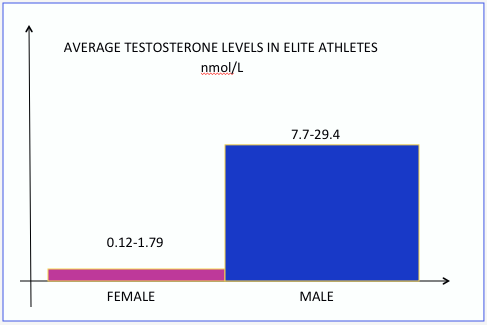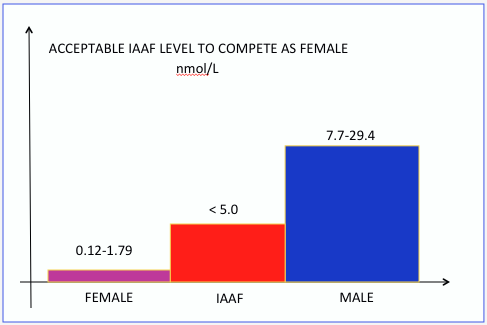Caster Semenya Olympic 800m champion loses appeal against IAAF testosterone rules. The sports world’s highest court ruled Wednesday Semenya and other female runners like her with unusually high testosterone must take medication to reduce their levels of the male sex hormone if they want to compete in certain events.
Champion Caster Semenya biologically different, is hyperandrogen, that mean the level of her testosterone is higher than a typical female.
Hyperandrogenism it’s a medical condition estimated to occur in 5 to 10% to woman. Semenya identify herself as female which cause a controversy because her body share some characteristics to men. So why it is important, and what you need to know, is that, an excess level of testosterone has been found to increase muscle mass within female, and cause increase strength stamina and physical energy.
Some official who govern the sport said the increase of testosterone provide an unfair advantage in certain events. as you can see down below are the natural levels of elite male and female athletes.

The IAAF had propose that in certain events all woman athletes identify as female must be at acceptable level or have to artificially reduce their testosterone level to an acceptable level, essentially changing their natural body chemistry.

A landmark ruling concerning one of the most contested issues in sport gender identity has sent shockwaves through track and field in setting out new parameters for female athletes.
The Court of Arbitration for Sport (Cas) rejected the South African’s challenge against the IAAF’s new rules. But Cas said it had “serious concerns as to the future practical application” of the regulations.
Olympic 800m champion Semenya, 28, said in response to the ruling that the IAAF “have always targeted me specifically”.
Now she – and other athletes with differences of sexual development (DSD) – must either take medication in order to compete in track events from 400m to the mile, or change to another distance.
“For a decade the IAAF has tried to slow me down, but this has actually made me stronger. The decision of Cas will not hold me back,” said Semenya in a statement.
“I will once again rise above and continue to inspire young women and athletes in South Africa and around the world.”
Previously, she had said that..read more on BBC

